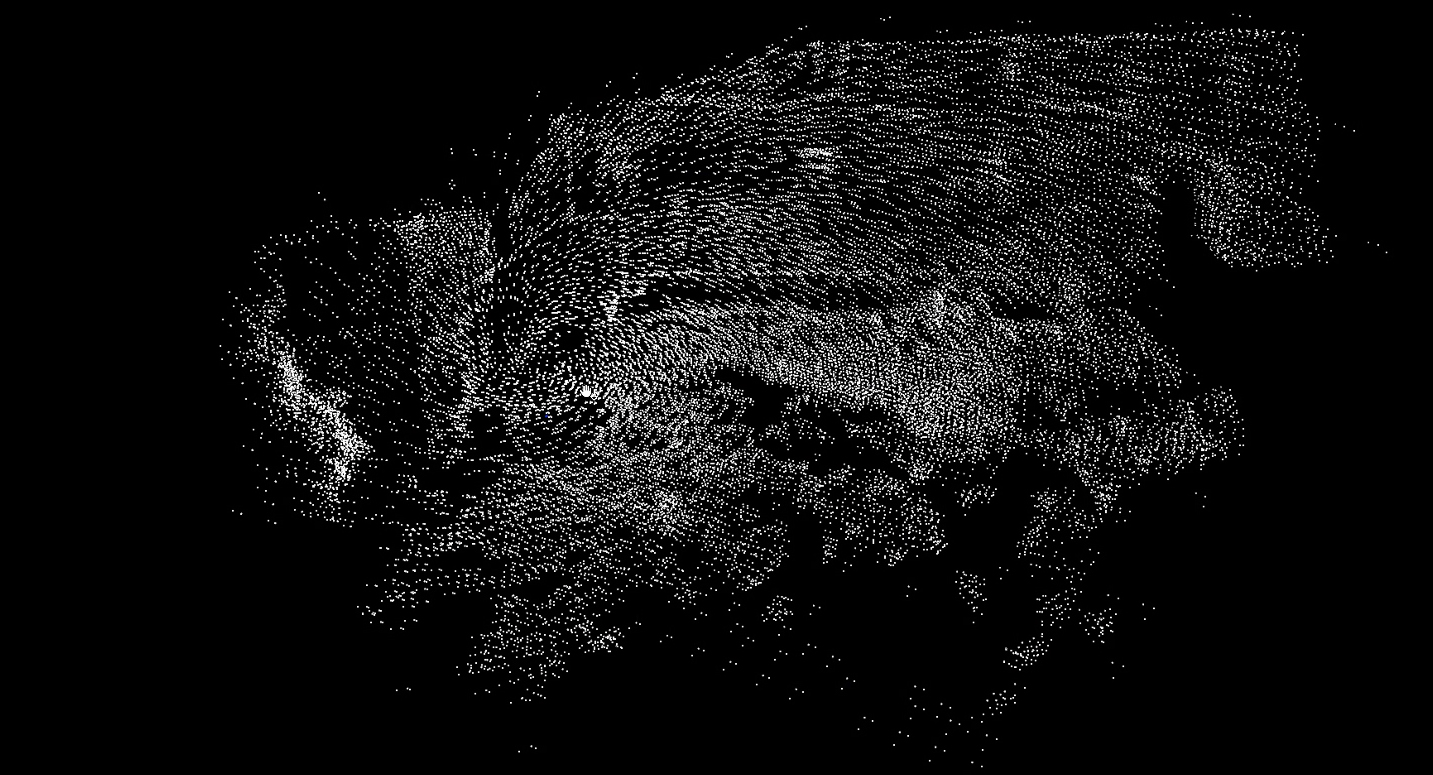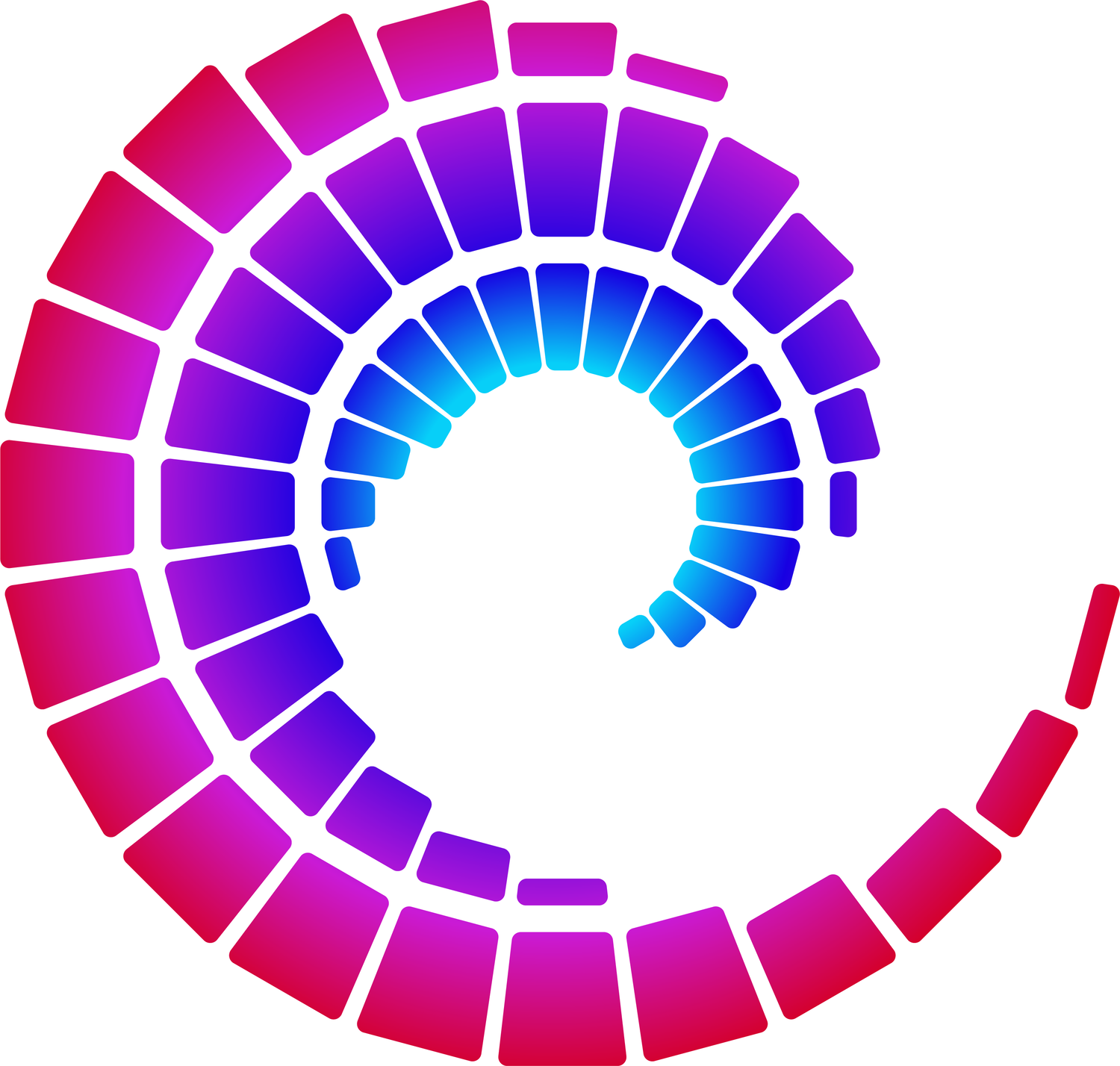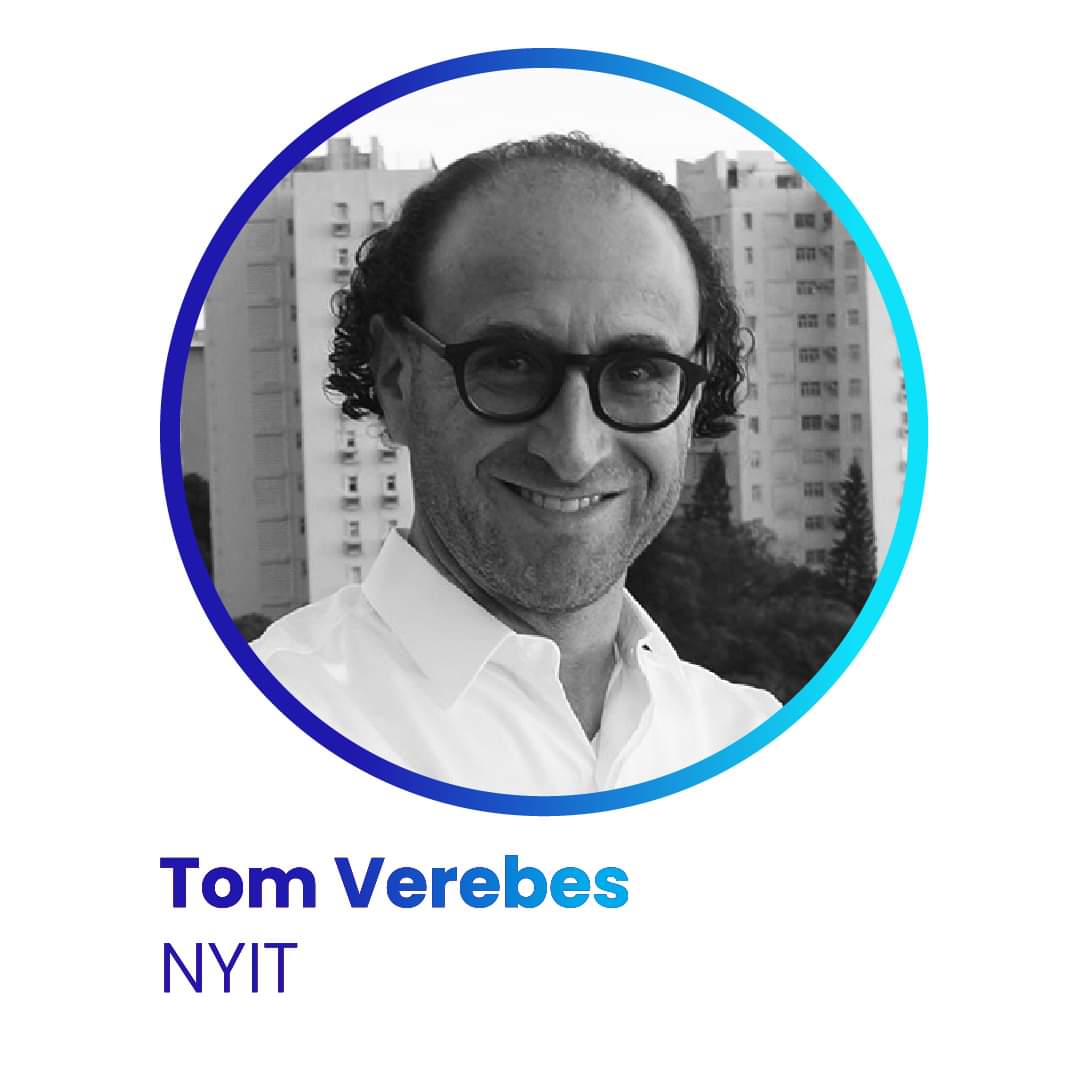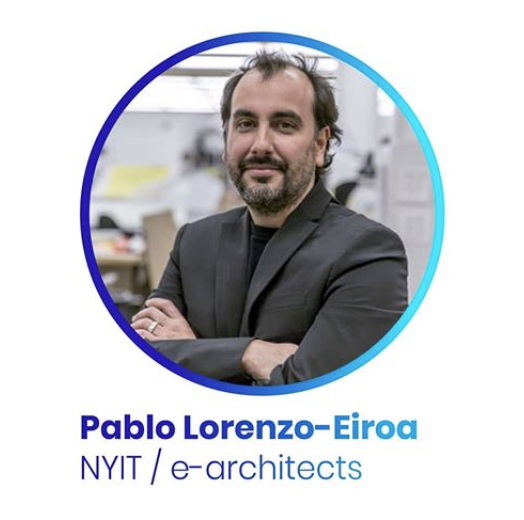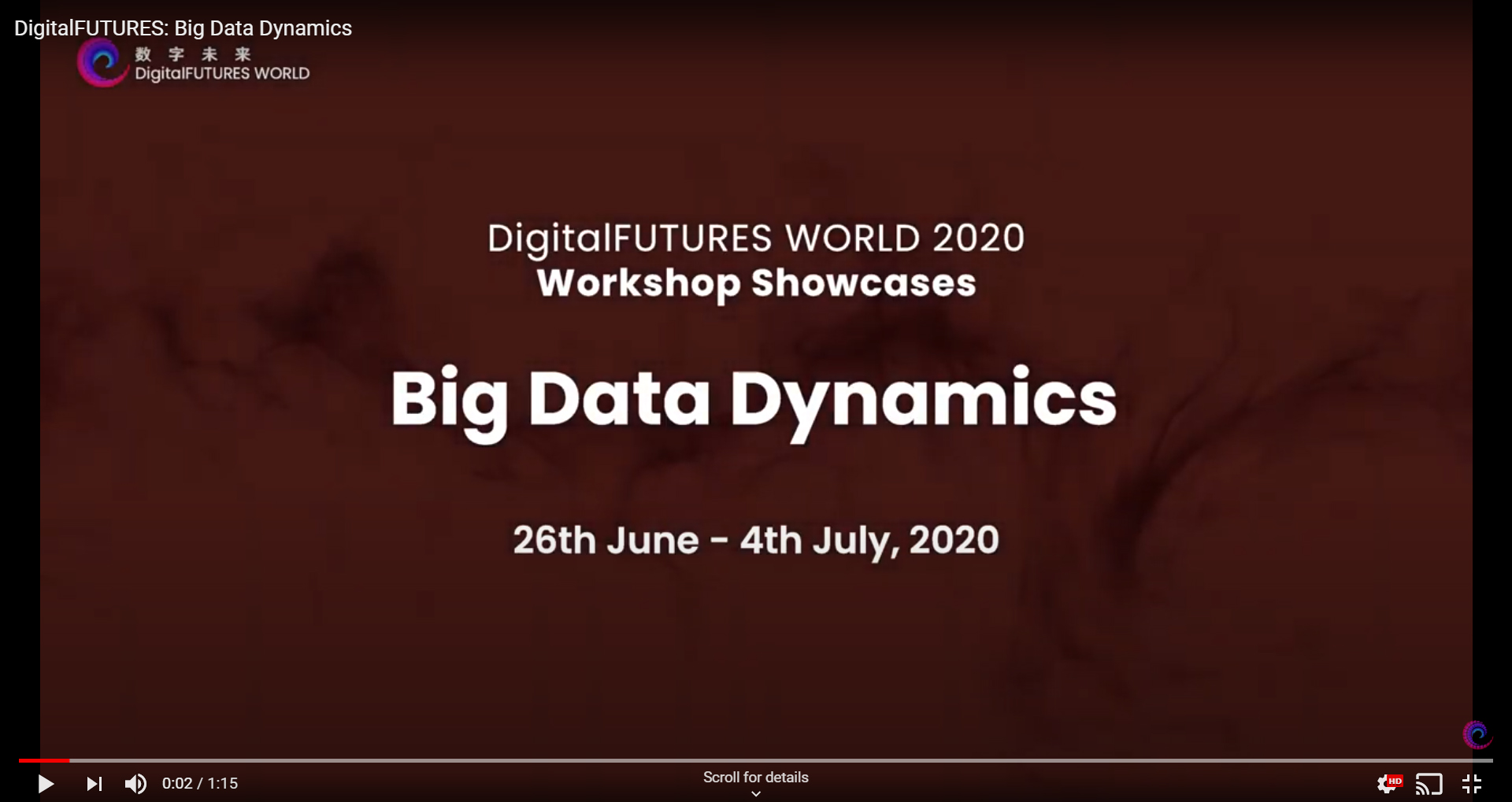Architecture Computational Technologies
Explore design research at the frontiers of architecture through experimentation in computational design, robotic systems applied to fabrication and interactivity, and materiality. For more information please contact ms.act@nyit.edu
Digital Futures World: Tom VEREBES, Pablo LORENZO-EIROA, Gabriel MUNNICH
New York Institute of Technology, School of Architecture and Design will be participating in the Digital Futures World event with talks, recorded lectures and workshops organized by Tongji University of Shangai, China organized by Phillip Yuan and Neil Leach.
Digital Futures Workshop will be lead by Associate Dean Tom Verebes, Associate Professor Pablo Lorenzo-Eiroa and including Teaching Assistant Gabriel Munnich (e-Architects.net). The workshop inscription is open and is tuition free, and the professors are donating their time to contribute to the pandemic efforts in China and Asia. The workshop Big Data Dynamics will include survey and processing of Big Data to activate specific architecture agendas.
Digital Futures World include talks, workshops and recorded lectures by Peter Eisenman, Nicolai Ourousoff, Patrik Schumarcher, Wolf Prix, Tom Mayne, Hashim Sarkis, Nader Tehrani, Achim Menges, Sanford Kwinter, Jenny Sabin, Rachel Armstrong, Neil Leach, Phillip Yuan, Ersela Kripa, Antoine Picon, Phillippe Morel,Matias del Campo, Sandra Manninger, Biayna Bogosian, Tom Verebes, Pablo Lorenzo-Eiroa, Liam Young, Claudia Pasquero, Marco Poletto, Gabriel Esquivel, Mariana Ibanez, Simon Kim, Mark Burry, Jose Luis Garcia del Castillo, Behnaz Farahi, Joseph Choma, Soomeen Hahm, Casey Rehm, Mike Xie, Nic Bao, Satoru Sugihara, Roland Snooks, Alisa Andrasek, Philippe Block, Areti Markopoulou, Alessio Erioli, Alessanro Zamparelli, Filippo Nasetti, Sina Mostafavi, giles Retsin, Pablo Herrera, Evangelos Pantazis, and many interesting experimental architects and theoreticians.
DigitalFUTURES WORLD: ARCHITECTS UNITE
A One Week Series of 24/7 Free Online Workshops & Talks
June 27- July 03, 2020
https://www.digitalfutures.world/
As part of a global event comprising 70 workshops and a non-stop series of talks, NYIT SoAD Associate Professor Pablo Lorenzo-Eiroa and Associate Dean for Academic Affairs, Tom Verebes, will co-teach a workshop, BIG DATA DYNAMICS, representing NYIT SoAD in this important and unprecedented initiative. Open to students and design professionals worldwide, all workshops and talks are offered free of charge, in response to the Covid-19 crisis.
This initiative brings together these two themes, the Digital and the Future, to create an online platform for a continuous, week long series of talks and workshops, exploring every aspect of the potential impact of the digital on our lives. In so doing this initiative itself becomes an example of the new possibilities afforded by the digital.
As the 10th anniversary edition of the DigitalFUTURES series, DigitalFUTURES World will operate as a continuous 24/7 event, broadcast across the different time zones in the world, operating like a relay as each of the 3 time zones passes on the baton to the next time zone. But at the same time it will offer dedicated workshops with a coherent theme and carefully structured schedule taught by some of the most inspirational instructors in the world within each time zone.
The model proposed is inspired by the LiveAid concerts where musicians come together and donate their time for free for good causes. So too it is inspired by One World: Together at Home, Lady Gaga’s recent gesture of bringing some of the leading musicians together in their living rooms, and beaming a message of good will into other living rooms throughout the world. The model is also inspired by the Olympics, an event that has always sought to transcend political divisions and bring the world together. The 2020 Olympics had to be postponed as a result of the virus. The symbol of the Olympics consists of rings metaphorically bringing together the 5 continents. A meme of these rings being kept apart has been one of enduring images of the impact of the virus. This event seeks to bring the 5 continents back together again, similarly transcending political divisions.
Workshop Leaders: Tom Verebes / NYIT + Pablo Lorenzo-Eiroa / NYIT + Gabriel Munnich
This workshop will introduce workshop participants to a set of computational processes related to the motion of the human body in interior and urban space, including data capture of photogrammetry point clouds, 3D modeling, coding and animation, and data visualization. The workshop will be divided into three distinct stages of work: STAGE 1 – DAYS 1-2: WORKSHOP INTRODUCTION AND DATA CAPTURE Workshop participants will be asked to form teams of between 2-4 students working online, or in person if possible. The focus of this stage is on the ergonomic dynamics of the body in relation to interior architectural space and the city. Using 3D scanning photogrammetry, each team will capture two sets of big data point clouds of the dynamic relation of a body in an interior room, and several bodies in exterior urban space. Students will be introduced to the ‘Reality Capture’ app available on smartphones, using a tripod, and possibly a drone if any students have one at their disposal. STAGE 2 – DAYS 3-4: DATA MANIPULATION, MODELING AND ANIMATION The point clouds captured of the body in an interior space as well as in urban space, will be manipulated dynamically, and post produced as meshes using 3D modeling in Rhinoceros, and in Maya Fluid Dynamics, Particles, with some coding in Python, and animation. Performative modeling of the forces and flows of the body will be used to generate relational models and animations of the mobile user within a dynamic space, rather conceiving space as a static container of human activity. STAGE 3 – DAY 5: PRESENTATION OF MODELS, ANIMATIONS AND DATA VISUALIZATION; FINAL REVIEW In a final stage of this workshop, participants will be guided to produce high quality representation of the first 4 days of the workshop.
Workshop Description:
Key Words: Ergonomic Dynamics, 3D Scanning Photogammetry, Performative Models, Coding, Animation
Required Skills: Beginner preferably proficient in Rhinoceros, beginner, preferably proficient in Maya, If possible some Python skills but not essential, proficient in Adobe InDesign
Required Software: Reality Capture (www.capturing reality.com) with an account for PPI, Rhinoceros 3d v 6.0 or 7.0 with with Grasshopper, Autodesk Maya 2018 or newer (2020) with Python Modules Library (usually included in Maya)
Required Hardware: Laptop, Camera (preferred) or Smartphone camera, tripod, Drone with a smartphone attachment (drone only if available but not essential)
Workshop Schedule:
DAILY Morning session (9:00-11:30am): 2.5 hours Afternoon Session (4:00-6:30pm): 2.5 hours
June 27, 28: Stage 1 June
29-30: Stage 2
July 1: Stage 3
About the Instructors:
Tom Verebes is Associate Dean for Academic Affairs, and Professor, in the School of Architecture and Design at New York Institute of Technology NYIT. Co-founder of OCEAN in 1995, and Director of his practice, OCEAN CN. Former academic roles include: Co-Director of the AADRL at the AA in London; Director of AAVS Shanghai, AAVS Xixinan, and AAVS Shenzhen; Associate Dean at the University of Hong Kong; and visiting positions at University of Pennsylvania, Syracuse University, Rensselaer Polytechnic Institute, RMIT, University of Tokyo, and SUTD. He has contributed over 150 publications, over 50 international exhibitions, and lectures worldwide.
Pablo Lorenzo-Eiroa is an international architect and scholar in the fields of architecture, urbanism, ecology and computation currently an Associate Professor at NYIT, working on a new MS Program in Computational Technologies. His work innovates in information-based representation and robotic systems aiming to displace the conventional parameters that define architecture. He is the design principal of e-Architects.net based on an emerging Architecture and Urbanism of Information. Lorenzo-Eiroa has authored and co-edited five books, including: Architecture In Formation, Routledge/Taylor&Francis, London, 2013.
Gabriel Munnich is a machinist, programmer, and designer. He has taught digital fabrication at the Cooper Union. He has also taught at NYIT and at several international workshops in China and Spain. Gabriel Munnich is a founder of UEO design, that creates machines and software to build. Their work was recently exhibited at the Shenzhen Biennial of Urbanism, the Eyes of the City, and elsewhere internationally, including at the MoMa’s architecture exhibition on Yugoslavia in 2018. He has collaborated with Pablo Lorenzo-Eiroa and e-Architects on several projects.
-
More Posts
All PostsMay 31, 2022
MS_ACT INNOVATION KEYNOTE LECTURE Kaicong Wu
May 26, 2022
MS ACT Lecture Shai Yeshayahu
May 16, 2022
